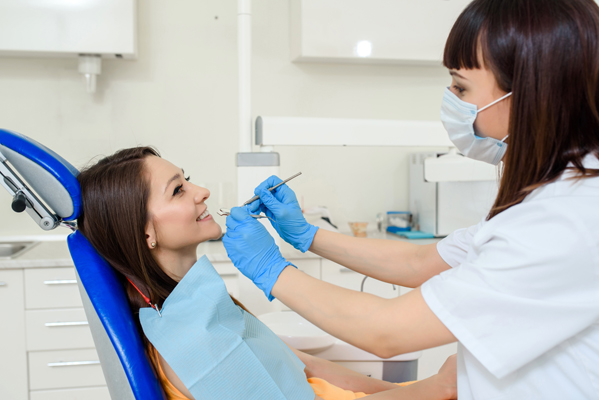Preventive Dental Care Reduces the Risk of Contracting Oral Health Conditions

Preventative dental care is an effective way to help reduce the risk of oral health conditions. Preventive dental care includes regular checkups, brushing teeth twice a day, and flossing at least once daily. These tasks can be time-consuming and seem trivial, but they are crucial for maintaining good oral hygiene. The American Dental Association recommends brushing your teeth at least twice a day and flossing daily. We visit the dentist every six months for cleanings and other treatments, such as sealants or fluoride treatment. This article will discuss the benefits of each task and their importance in maintaining good oral health.
Brushing teeth at least twice a day
Brushing one's teeth should be a priority every day. If possible, brush before going to bed since food particles begin staining teeth while the patient is asleep. It is also essential to brush the teeth after eating, such as breakfast and lunch, since food particles can stay in the mouth for hours on end if they are not brushed away properly. Some of these fragments might contain acids that cause tooth decay or cavities over time.
Brushing twice a day will remove plaque from the teeth, which contains bacteria that can cause gum disease and cavities if left alone. It is also a good idea to brush the teeth after consuming sugary or acidic foods, such as fruit juices or soda pop since the acid wears away at tooth enamel over time. Although brushing the teeth might seem like a hassle, it will help prevent health conditions from developing in the patient's mouth, such as gum disease or cavities.
Flossing
Brushing the teeth is a good idea, but it might not prevent all oral health conditions in the future. Flossing should be done once per day after brushing to remove food particles from between teeth that are hard to reach when using a toothbrush.
Even if the patient has healthy gums, food particles can get stuck between teeth, and the only way to remove them is with dental floss. Plaque can also accumulate in these hard-to-reach areas over time, turning into tartar if it isn't removed by brushing or flossing regularly.
It's essential for people of all ages to floss their teeth since it will help prevent gum disease and cavities. Dental floss can be purchased in children's sizes for younger individuals who have not yet developed the skill to use traditional string floss. Teens should also floss regularly, even after they have passed their teenage years, because food particles can get stuck between teeth, leading to plaque over time.
Talk to a dentist about oral health basics
Although these tasks can sometimes be tedious or inconvenient, preventive dental care habits are crucial for maintaining good oral hygiene and freeing oral health conditions like gum disease. If you need help with flossing your teeth properly, we can demonstrate how to do it at home, whether with traditional string floss or alternative flossing methods. By following these basic tasks, you can maintain a bright and healthy smile. Call our Tyler office to learn more.
Request an appointment here: https://www.timsmithdental.com or call Tim Smith Dental at (903) 592-5934 for an appointment in our Tyler office.
Check out what others are saying about our dental services on Yelp: Preventative Dental Care in Tyler, TX.
Related Posts
Practicing preventive dentistry at home allows you to reap many benefits for your general health. Brushing and flossing every day is a basic way of keeping your mouth in good shape. Having healthy teeth and gums helps support your whole body’s health. If you want to find out why good everyday dental hygiene is important…
Preventive dentistry deals with dental procedures to prevent dental issues, and it is critical for anybody who wants to keep their natural teeth for the rest of their life. Dentists used to spend most of their time treating dental issues rather than preventing them.Due to people's overly busy schedules, it is easy to put off…
Preventive dentistry can support your efforts to keep your mouth healthy, including practicing good oral hygiene, eating a balanced diet, and avoiding things that can damage your teeth and gums. Good oral hygiene goes a long way in helping to prevent common dental issues, such as tooth decay and gum disease, but sometimes it is…
The role of preventative dentistry is to minimize the risk of future dental issues in patients. Read on to learn some tips that encourage the prevention of oral issues. If you have experienced and treated dental issues in the past, you will attest that it is better to prevent them from happening in the first…


